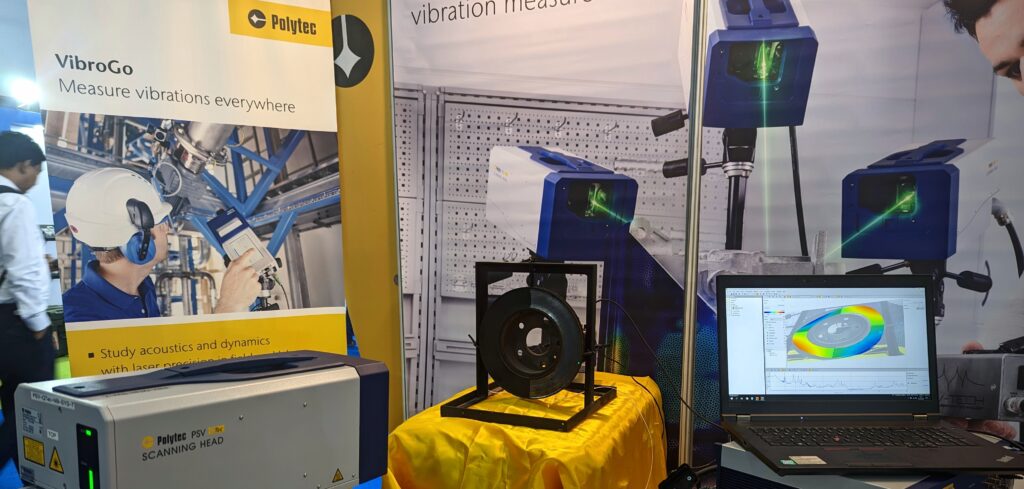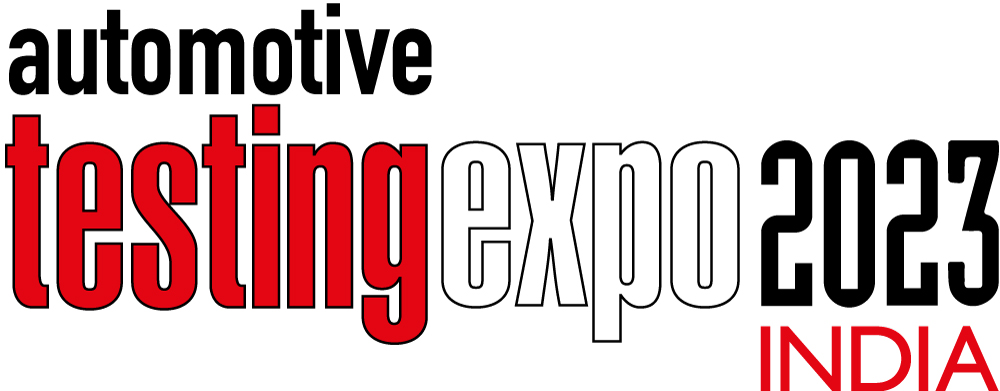A pioneer in non-contact laser vibrometry, Polytec is showing its latest PSV vibrometer with patented QTec technology that gives users an advantage when measuring automotive components on difficult surfaces.
On the challenges of laser vibrometry, Chris Chia, managing director at Polytec, explained, “Measuring by light causes speckle effects, spurious drop-outs in the signals, which affect analysis of measured data. QTec’s Multi-Path interferometer allows multi-perspective detection, achieving better SNR, minimized influence of incidence angle and lesser averaging requirements. QTec addresses drop-out issues for unrivaled data in rotating surfaces. By minimizing the influence of incidence angles, we can capture a larger field-of-view, even when samples have large curvatures.
“In stationary conditions, improvements are surface related. Tires, being dark with threads, are not the most cooperative surfaces for light-based measurements. QTec helps to improve SNR and achieve faster, high-fidelity measurement. Additionally, an uncooperative surface rotating at high speeds can be a measurement nightmare. However, QTec resolves all of the following: high occurrence of drop-outs due to rotation; lateral motion of uncooperative surface; tire treads resulting in discontinued surfaces in rotation; difficulty in surface preparation; tangential speed of rotating tires resulting in measurement over-ranges. With the increasing demand for quieter EVs, testing tires in rolling conditions may be indispensable to address a key noise source.”
He continued, “The concern in production testing is typically throughput, repeatability and ease of setup. Accelerometers require the constant motion of contacting and un-contacting a sample while microphone testing is subjected to environmental noise, which is resolved by additional investments in anechoic test chambers. Laser vibrometers with autofocusing capabilities mean that the production line can be automated in high-volume measurements without complex robotic arms or operator intervention or cumbersome anechoic chambers.”
On haptics as an increasing application trend, he revealed, “Laser vibrometers with a defined focus plane can measure on glass surfaces. Large bandwidth capability coupled with small laser spot size make it a go-to solution to visualize ultrasonic surface waves on haptic interfaces.
“Automotive Testing Expo India remains the leading exhibition for the Indian automotive industry. With the advances we’ve seen from Indian customers, we are excited to showcase our latest QTec Scanning Vibrometer to address their most challenging measurements. We’ll be excited to speak with NVH experts from all automotive manufacturers and suppliers on employing non-contact solutions in the future – not just for non-contact vibration measurement but also drop-out free, high-fidelity measurement capability where the laser spot is the sensor.”
Meet Polytec at Booth 4023.



